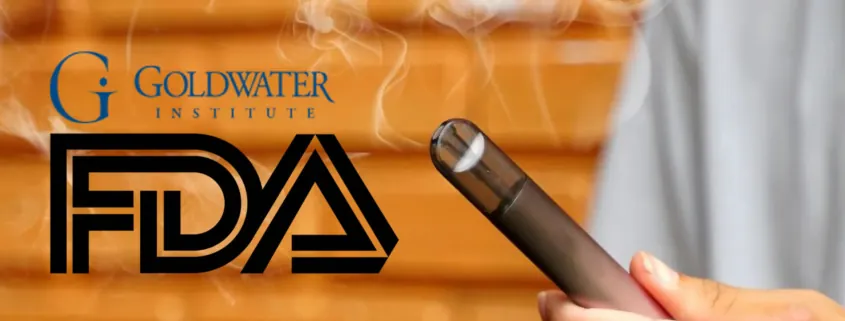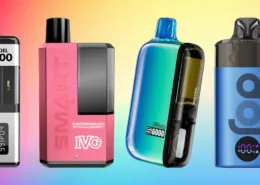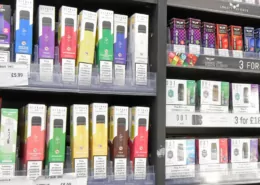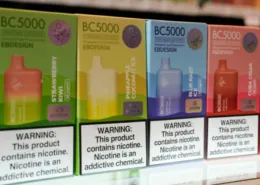Goldwater Institute Urges Supreme Court to Stop FDA’s Arbitrary Blocking of E-Cigarette Marketing
The Goldwater Institute has filed a brief urging the U.S. Supreme Court to stop the Food and Drug Administration (FDA) from blocking the marketing of e-cigarettes under the baseless claim that they may increase smoking among young people. The FDA’s actions effectively limit adults’ access to the most important cessation tools for smokers who want to quit and transition to healthier alternatives.
The brief highlights the extensive body of scientific literature demonstrating the harm-reduction benefits of e-cigarettes, particularly for vulnerable populations who need these life rafts to recovery the most. Unlike traditional cigarettes, e-cigarettes vaporize liquid instead of burning tobacco and don’t produce carbon monoxide, making them safer for consumers, as proven by hundreds of studies.
E-Cigarettes Ranked Just Behind Nicotine Patches and Gum in Safety
A panel of international experts ranked e-cigarettes’ safety just ahead of nicotine patches and gum, demonstrating that they are 95% less harmful than conventional cigarettes. Smokers who transition to e-cigarettes for just one year reflect similar levels of toxicants in their urine to those who have never used tobacco products.
E-cigarettes have proven to be one of the most successful cessation methods on the market, as they replicate many of the physical actions associated with conventional smoking. An article published by Harvard Medical School analyzed 61 studies1 and found that e-cigarette use was nearly two times or more effective than other approaches to quitting smoking. Having a variety of flavor options is critical, as research2 has shown that users of sweet-flavored e-cigarettes are 43% more likely to quit smoking than users of tobacco-flavored or unflavored products.
FDA’s Arbitrary Roadblocks Undermine Public Health Strategies
Despite the many benefits of e-cigarettes and their potential to help transition millions of smokers away from conventional smoking, the FDA’s failure to regulate and authorize harm reduction alternatives for companies that play by the rules has not only opened the floodgates to foreign players selling illicit and unsafe products but also diminished the ability of e-cigarettes to help the estimated 28 million Americans who smoke.
The Supreme Court should hold the FDA accountable for imposing arbitrary roadblocks and open the door to products that follow the rules. This will ensure a healthier e-vapor market while simultaneously helping more Americans quit and transition away from conventional cigarettes.
References:
- Electronic cigarettes for smoking cessation https://pubmed.ncbi.nlm.nih.gov/34519354/ ↩︎
- How Does the Use of Flavored Nicotine Vaping Products Relate to Progression Toward Quitting Smoking? Findings From the 2016 and 2018 ITC 4CV Surveys https://academic.oup.com/ntr/article/23/9/1490/6149939?login=false ↩︎
- India Researchers Call for Re-evaluation of Vape Ban - August 9, 2025
- Malaysian Health Minister: Vape Ban is No Longer an ‘If’ - August 9, 2025
- Is It Illegal to Vape or Smoke While Driving in Indiana? - August 9, 2025








